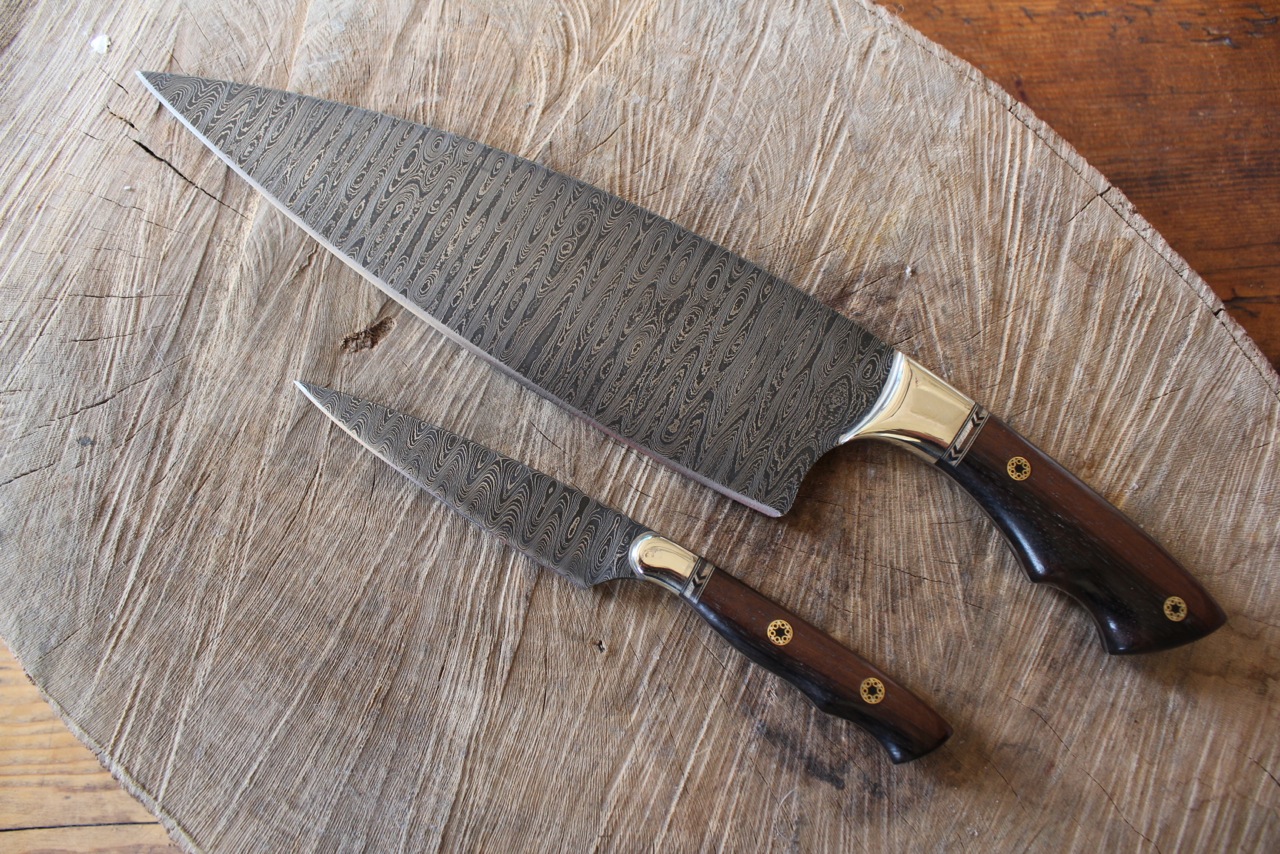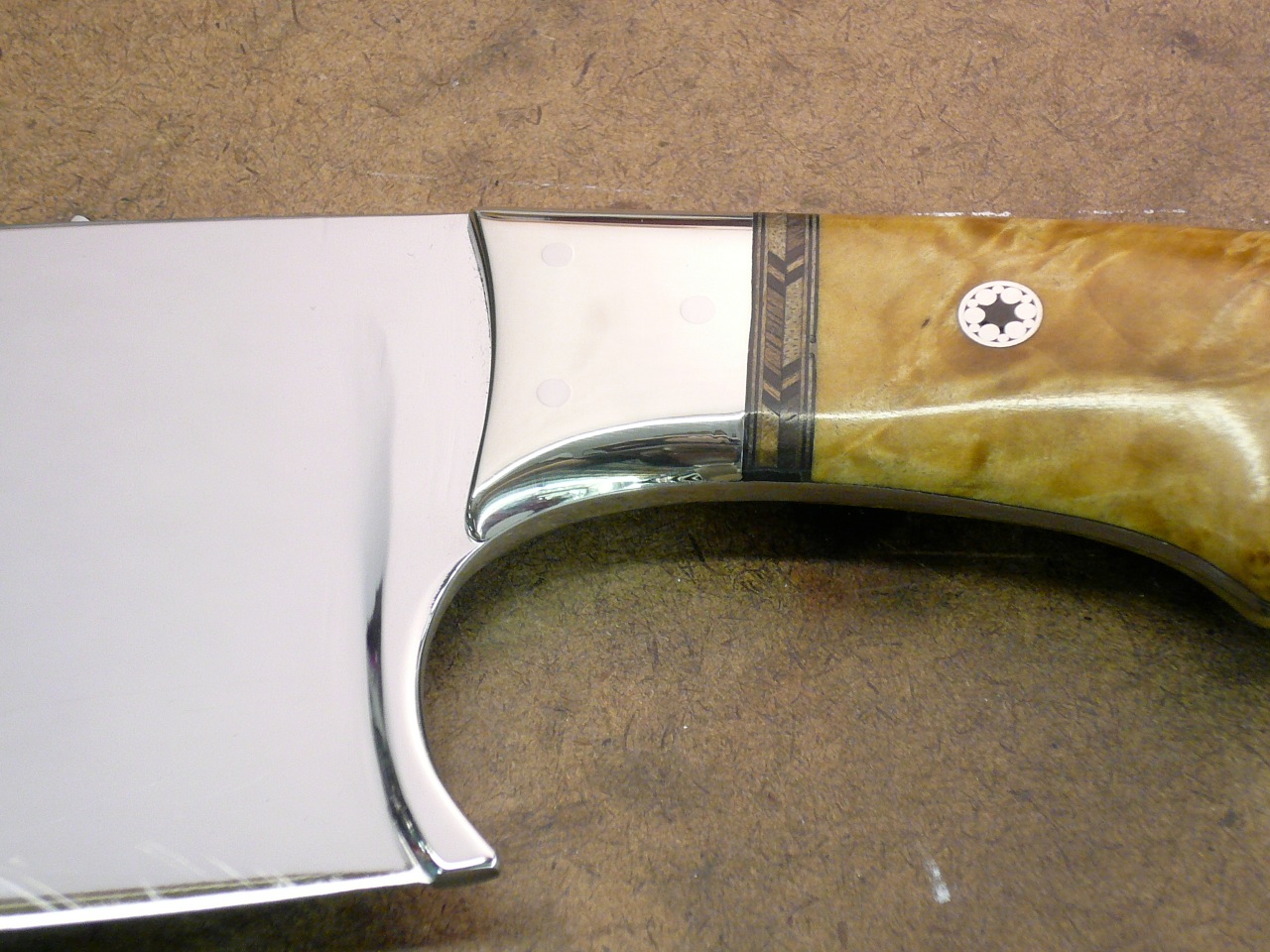Cooking With Wooly Mammoth Tooth. Seriously.

Rachael Ray and Marc Murphy have purchased knives from Paul Cox.

Cox advises to keep blades well oiled and sharp. And don't let them rust away in some display case.
If you happen upon your child alone in the basement forging a knife, don't jump to any conclusions. Sure, he may turn out like Dexter, the serial-killing blood spatter analyst. But he also might turn out like Paul Cox, designer and artisan.
Cox has been making knives since he was a tot. Now, he designs and constructs not only kitchen cutting tools but – and primarily – custom motorcycles. The only connection between the two is that they're both practical items that can be made in a straightforward utilitarian way. Or in a strange and beautiful way. Cox opts for the latter. The materials he uses to create his knives range from exotic hardwoods to chunks of meteorite to wooly mammoth tooth. Yes, you read that last one right.
Cox has made custom knives for Martha Stewart and Rachael Ray and is finishing up a set of pieces for chef Marc Murphy, who had been in Cox's bike shop looking at motorcycle parts when he learned that growling hogs weren't the designer's only specialty.
"The silhouette is where it starts," says Cox of the creative process that leads to the fabrication of his knives, which run between $750 and $2,000. "It's got to fit in the hand and be comfortable for maybe an eight-hour day of cutting and not banging your knuckles on the cutting board. It has to be the right size, not too heavy for a smaller hand, and specific to the food that it's being used for."
From making tools out of found items as a kid, Cox graduated to making professional-grade chef's knives through his connections with various restaurant industry folk. Many of his pieces are influenced by Japanese knife styles. He likes using Damascus steel for the blades. It's a material that goes back thousands of years and was popular in swordmaking — for its unbreakable strength and razor sharpness.
As for some of the more exotic materials he uses for the handles, like bone or horn or, yes, even wooly mammoth tooth, it turns out you can find all these materials legally online. (Go ahead and Google "bone shop" and you'll find far less porn and far more dinosaur bones that you'd expect.)
So, how does he suggest keeping one of his bespoke knives in tip-top shape? He gives his clients the same advice for knives as for motorcycles: use it. Keep the blades well-oiled and sharp. And don't let them rust away in some treasure chest or display case. Beautiful as they may be, they are not just sharp, pointy sculptures.
"I went into see [a friend] some months ago and asked about one of the knives that I made for him," recalls Cox. "He pointed down to his butcher's block and there was the knife, covered in olive oil and garlic and whatever he was in the middle of chopping up. It was the most beautiful thing, because that's exactly where it was meant to be."
Interested in a custom knife? You can contact Paul at Paul Cox Industries.

